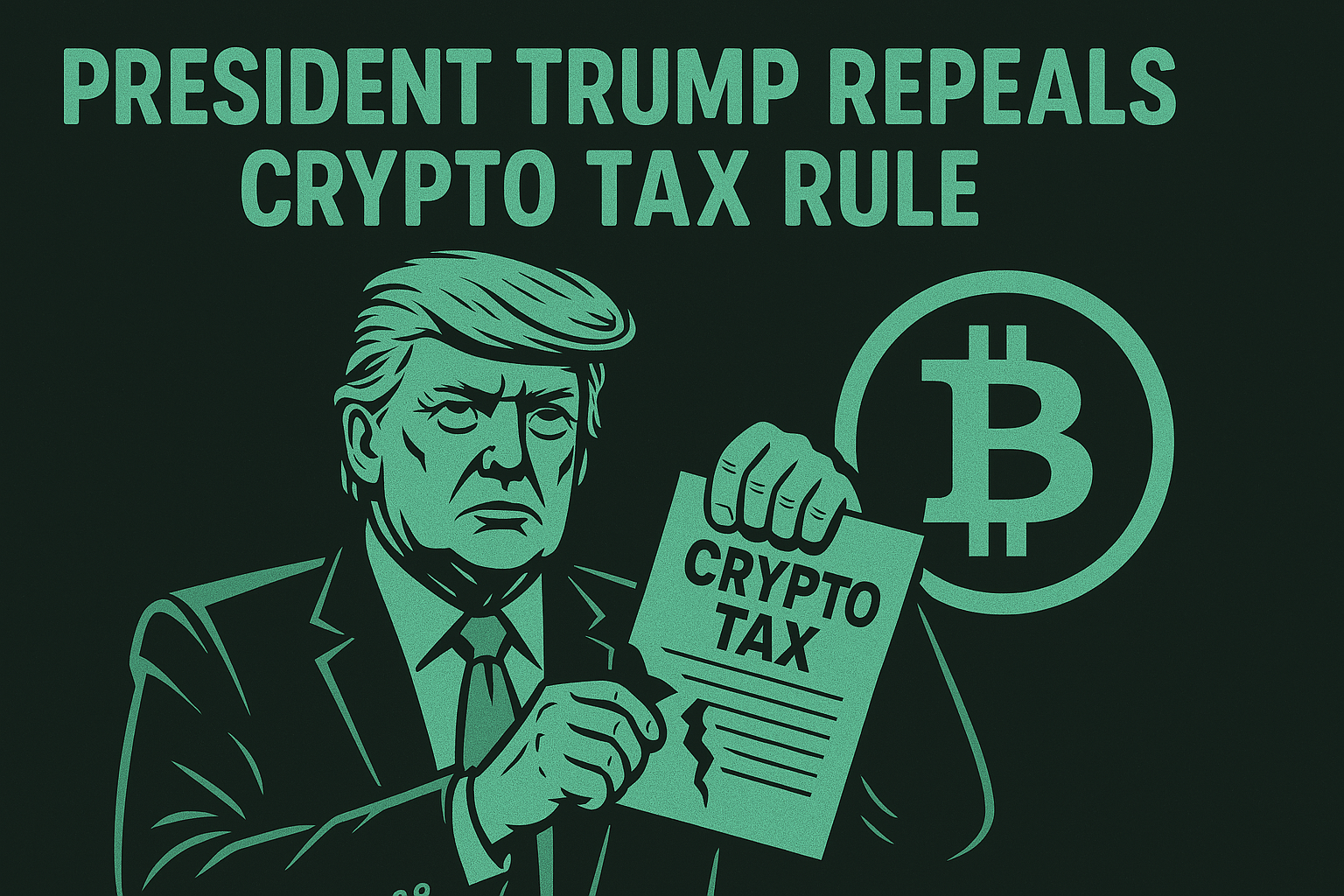U.S. President Trump Repeals Crypto Tax Rule in Major Win for Crypto Industry

- Trump repealed a last-minute IRS crypto rule, easing pressure on DeFi platforms and avoiding strict reporting mandates.
- The bipartisan rollback signals a shift in U.S. crypto policy, favoring innovation over heavy-handed federal oversight.
Former President Donald Trump has scrapped a controversial tax rule that stirred up tension between Washington and the crypto world, rolling back a measure from the final stretch of the Biden era. The decision, finalized Thursday, instantly became the first crypto legislation ever signed into U.S. law.
The now-defunct IRS rule would have required companies in decentralized finance to act like Wall Street brokers. It demanded that they gather trading details from users and report that data to the federal tax agency. Critics warned it could smother innovation in a sector worth over $2 trillion globally.
Trump’s repeal came after strong support from Republicans and select Democrats. Rep. Mike Carey of Ohio, who helped spearhead the resolution, said:
By repealing this misguided rule, President Trump and Congress have given the IRS an opportunity to return its focus to the duties and obligations it already owes to American taxpayers instead of creating a new series of bureaucratic hurdles.
Senate Flip Seals-It
The rule originally came into force last December during the Biden administration and was aimed at tightening oversight on “custodial brokers.” These entities, according to the Treasury Department, were defined as front-end platforms that interacted directly with crypto users, not the protocols themselves.
Republican Senator Ted Cruz and Representative Carey jointly introduced the resolution to kill it earlier this year. It quickly passed the Senate in March and later moved through the House. But since the rule was tied to a budget element, it had to swing back for a second Senate vote before reaching Trump’s desk.
Interestingly, Senate Minority Leader Chuck Schumer was among a handful of Democrats who backed the repeal, reflecting how bipartisan concerns around federal crypto policy had grown. Despite party lines, skepticism over the rule’s practical reach united lawmakers worried about its unintended consequences.
Crypto Sector Sees a Policy Shift
The DeFi Education Fund welcomed the move. Executive Director Amanda Tuminelli didn’t hold back in her statement:
President Trump’s signature is a critical signal change for the crypto industry: the United States has embraced a sensible, forward-thinking approach to digital assets.
The original IRS regulation would have forced decentralized platforms to collect information similar to banks or stock brokerages, including issuing Form 1099s for non-job-related income like royalties or gambling winnings. Many argued this was fundamentally incompatible with how decentralized platforms operate—where users control their own data.
Supporters of the repeal described the rule as a last-minute regulation rushed in during Biden’s final weeks, branding it as an overreach that clashed with how blockchain systems function. The White House under Trump had already signaled support, referring to the rule as a “midnight regulation” pushed through without wide public buy-in.